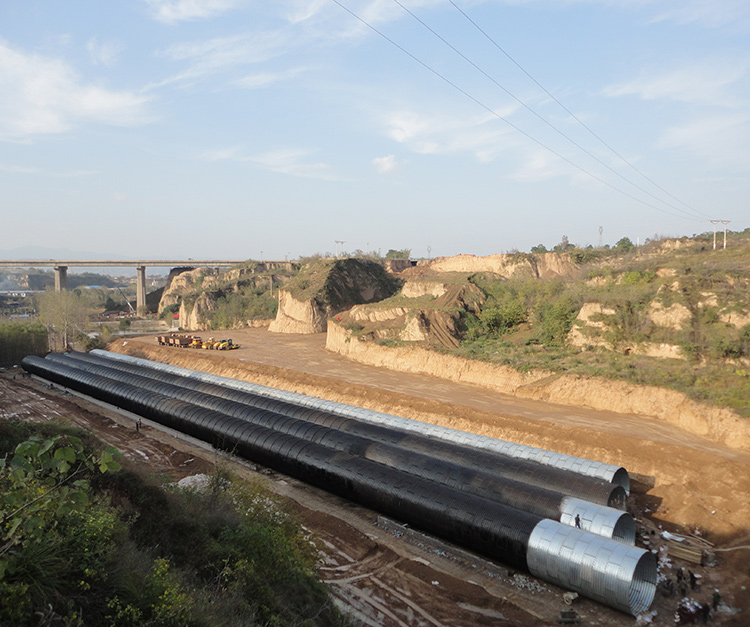What is corrugated metal pipe used for?
Corrugated metal pipe (CMP) is a stalwart in civil engineering, offering a versatile and reliable solution for various applications. This article dives into the world of corrugated metal pipe, unraveling its characteristics and exploring the myriad ways in which it serves as an indispensable component in infrastructure projects.
1. Defining Corrugated Metal Pipe (CMP):
1.1 Construction and Design:
Corrugated metal pipe is a cylindrical tube made from corrugated sheets of metal, typically galvanized steel or aluminum. The corrugations impart strength, flexibility, and structural integrity to the pipe, allowing it to withstand various loads and environmental conditions.
2. Applications in Drainage Systems:
2.1 Stormwater Management:
One of the primary uses of CMP is in stormwater management systems. CMP efficiently conveys stormwater runoff, preventing flooding and erosion. The corrugated design enhances the pipe's hydraulic efficiency, making it an ideal choice for culverts and stormwater conveyance.
2.2 Culverts and Underpasses:
Corrugated metal pipe serves as a vital component in culverts and underpasses. These structures facilitate the passage of water beneath roads, railways, and embankments, ensuring a smooth flow while providing structural support.
3. Infrastructure for Roads and Highways:
3.1 Cross-Drainage Systems:
CMP is extensively used in cross-drainage systems beneath roads and highways. It enables the efficient passage of water from one side to the other, preventing water accumulation and potential damage to road foundations.
3.2 Soil Stabilization:
CMP contributes to soil stabilization in road construction projects. By efficiently managing water runoff, CMP helps prevent soil erosion and preserves the integrity of roadbeds.
4. Railway Applications:
4.1 Railroad Culverts:
CMP finds application in railroad infrastructure, serving as culverts beneath railway tracks. These culverts ensure proper drainage and prevent water-related issues that could compromise the stability of the tracks.
5. Utility and Infrastructure Protection:
5.1 Utility Encasements:
CMP is used to encase utilities such as water pipelines and electrical conduits. This protective layer shields utilities from external elements and potential damage, ensuring the longevity of infrastructure.
6. Environmental Applications:
6.1 Stream Crossings and Fish Passages:
CMP is employed in stream crossings, providing a passage for water flow while maintaining the ecological balance. Additionally, fish passages can be integrated into CMP structures to facilitate the movement of aquatic life.
6.2 Retaining Walls and Erosion Control:
In environmental projects, CMP is utilized in retaining walls and erosion control structures. Its durability and resistance to environmental factors make it an effective choice for stabilizing slopes and preventing soil erosion.
7. Advantages of Corrugated Metal Pipe:
7.1 Durability:
CMP's corrugated design enhances its structural integrity, allowing it to withstand heavy loads, impacts, and environmental pressures.
7.2 Flexibility:
The flexibility of CMP facilitates easy installation and adaptation to various shapes and contours, making it suitable for diverse project requirements.
7.3 Cost-Effectiveness:
CMP is often a cost-effective choice due to its durability, low maintenance requirements, and ease of installation, contributing to overall project cost savings.
Corrugated metal pipe stands as a testament to engineering ingenuity, proving its worth across a spectrum of infrastructure projects. Whether channeling stormwater, supporting roadbeds, or protecting utilities, CMP's versatility and resilience make it a cornerstone in civil engineering. As technology advances and infrastructure needs evolve, corrugated metal pipe continues to adapt, ensuring its continued role as a vital component in the construction and maintenance of resilient and sustainable infrastructure systems.



